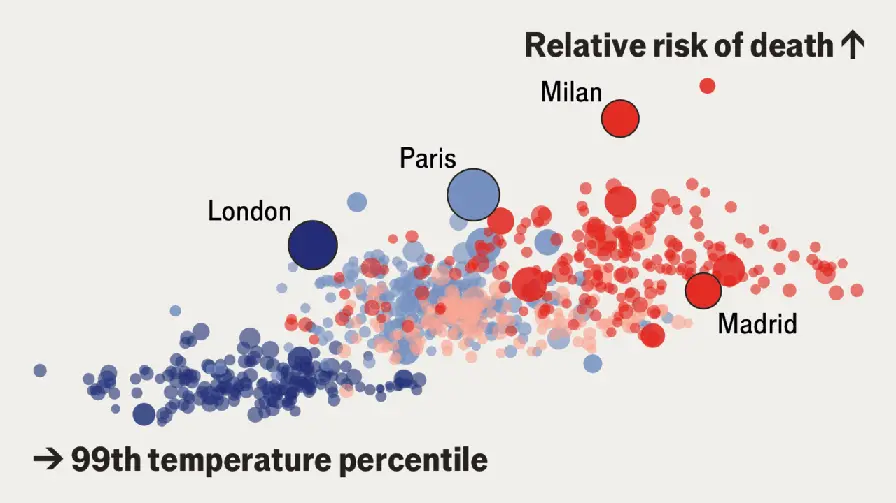T4K3.news
London heat risk prompts adaptation
An academic urges cities to treat extreme heat as a risk and learn from hotter European cities.

An academic argues Britain should treat extreme heat as a risk and learn from continental cities on design and daily life.
London must adapt heat risk by learning from hotter European cities
A UK academic argues Britain should treat extreme heat as a risk and urges changes in building design and daily life. Mehri Khosravi of the University of East London says London needs to shift its attitude toward heat to match practices seen in other European cities.
The piece notes Seville as a model where everyday life is reshaped by heat: bars and restaurants close in the afternoon and locals avoid outdoor activity during peak sun, resuming later in the evening. The expert suggests simple behavioral changes such as shading buildings, keeping curtains closed, and using the night hours for ventilation. These steps, she argues, can be implemented without major upheaval and offer a practical path to reducing heat exposure in urban settings.
Key Takeaways
"People in the UK treat heat as a nice thing."
Direct observation of cultural attitudes toward heat by the academic.
"We need to adapt in terms of building design."
Clear call for changes in architecture and standards.
"In the hottest hours of the day, they pause some activities and then they resume it in the evening."
Description of continental practices used as a model.
"They use night for ventilation."
Specific cooling strategy highlighted by the expert.
The argument rests on a blend of architectural thinking and cultural adaptation. It challenges a common British assumption that heat is just an occasional annoyance and reframes it as a risk that warrants foresight in design and routine. The critique also raises questions about how cities balance comfort, energy use, and cost in a warming climate. If adopted, the approach could push planners to rethink street layouts, window design, and public messaging. The risk is that without clear incentives, behavior changes may stall and leave vulnerable groups exposed.
Highlights
- Treat heat as a risk, not a weekend perk.
- Simple design tweaks cut peak heat more than you expect.
- Learn from cities where heat shapes daily life.
- Night ventilation is a practical first step.
Small changes in design and daily routines could reshape London summers.
Enjoyed this? Let your friends know!
Related News

London overheating in new flats

Europe faces record heat and wildfires

New-build homes in the UK suffer from severe overheating

City heat resilience plan

Heat risk rises in European cities

Wildfires strain Europe as heatwave persists

Nordic heat wave shows climate change in real time

Heat Risk Strains England Low Income and Minority Households
